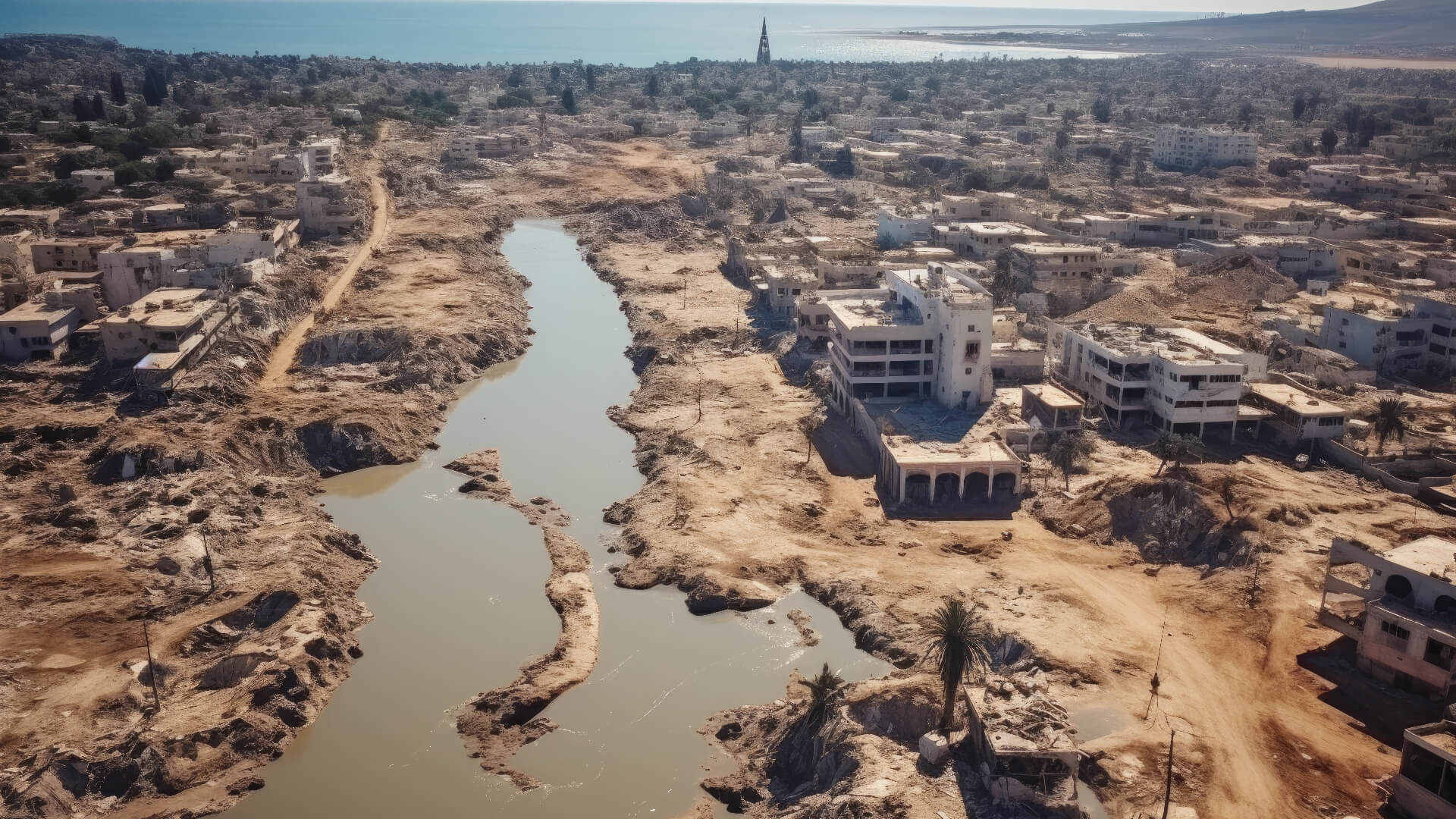This month’s devastating floods affecting Libya have brought the country back to the forefront of international media. In the annals of international relations, Libya stands as a stark reminder of the perils of interventionism. The removal of Muammar Gaddafi, a dictator notorious for his brutality and erratic behavior, was initially hailed as a triumph of Western intervention. However, twelve years on, Libya remains a cautionary tale, a nation engulfed in chaos and violence, its people suffering as a result of the very intervention that promised liberation.
There is no denying that Gaddafi’s regime was oppressive and tyrannical. His four-decade-long rule was marked by human rights abuses, a stranglehold on civil liberties, and a propensity for supporting international terrorism. In this light, it is understandable that calls for intervention in Libya gained momentum in 2011, as Western powers, including the United States and several other NATO countries, joined forces to oust the Libyan dictator.
The military campaign that followed was swift and decisive. Gaddafi was toppled, and the world watched with hope as Libya was poised for a new beginning. However, the optimism that initially surrounded the intervention quickly faded as the reality on the ground proved far more complex than anyone had anticipated.
Instead of ushering in an era of democracy and prosperity, the removal of Gaddafi left behind a power vacuum that persists to this day. Libya descended into a state of turmoil characterized by rival militias vying for control, a weak central government, and a lack of any semblance of the rule of law. The nation’s vast oil wealth became a source of conflict rather than a driver of development as various factions fought for control of this precious resource.
The impact on the lives of ordinary Libyans has been devastating. Basic services, such as healthcare and education, have deteriorated, and the security situation remains dire. Violence and insecurity are pervasive, and human rights abuses continue, with reports of arbitrary detentions, torture, and extrajudicial killings becoming all too common.
One of the most striking indicators of Libya’s descent into chaos is the recent flooding crisis. Torrential rains have caused catastrophic flooding, displacing thousands of people and resulting in a significant loss of life. The absence of a functioning government, infrastructure, and disaster response mechanisms has made it impossible to effectively respond to this natural disaster, leaving Libyans to suffer the consequences.
In hindsight, it is evident that the intervention in Libya was carried out with inadequate planning and a lack of a clear post-conflict strategy. The hope of building a stable and democratic nation from the ashes of the Gaddafi regime was naive at best. The interventionist fervor underestimated the complexity of Libyan society and the potential for rival factions to fill the void left by Gaddafi.
The Libyan experience serves as a stark reminder that removing a dictator does not guarantee the emergence of a free and prosperous society. In many cases, the abrupt removal of a strongman can lead to chaos, power struggles, and further suffering for the population. It highlights the need for careful consideration of the potential consequences of intervention, as well as the importance of long-term planning and nation-building efforts.
If and when the United States and other Western powers contemplate future foreign policy decisions, Libya should serve as a cautionary tale. The urge to intervene in the affairs of other nations, especially those ruled by oppressive regimes, must be tempered with a realistic assessment of the likely outcomes and a commitment to long-term stability and peace.
While it is undoubtedly important to stand against tyranny and support movements for democracy and human rights, it is equally crucial to recognize the limitations of external military intervention. The case of Libya illustrates that intervention, even with the best intentions, can sometimes lead to unintended consequences and prolonged suffering.
As Libya continues to grapple with the aftermath of intervention and the ongoing turmoil, the international community must reflect on the lessons learned from this tragic episode. Instead of rushing headlong into regime-change operations, the focus should shift toward diplomatic solutions, supporting local actors, and investing in long-term nation-building efforts that prioritize the well-being of the people affected by such interventions.
In conclusion, Libya stands as a cautionary tale against interventionism, a vivid reminder of the unpredictable and often dire consequences that can result from hasty regime change. The West must approach foreign policy with a dose of humility, recognizing that the removal of dictators is just one step in a complex and arduous journey toward peace and stability. The people of Libya deserve a chance at a better future, one that is not marred by the unintended consequences of well-intentioned interventionism.
Are you a student interested in getting involved in pro-liberty activism? By applying to join Students For Liberty’s Local Coordinator Program, you can be supported in promoting the ideas of liberty while also developing your skills and meeting many like-minded students from across the world. Click on the button below to find out more and get involved!
Are you looking for an opportunity to gain new insights about the ideas of liberty and network with like-minded individuals? Students For Liberty’s upcoming LibertyCon International, held in Washington, D.C., on February 2-4, 2024, is an event you won’t want to miss!
LibertyCon International offers an opportunity to engage with top experts, scholars, and entrepreneurs from a variety of fields while providing a platform for attendees to connect with others who are dedicated to advancing pro-liberty ideas and creating a freer future.
Click the button below to sign up for updates and secure your spot at this exciting event. We can’t wait to see you there!
This piece solely expresses the opinion of the author and not necessarily the organization as a whole. Students For Liberty is committed to facilitating a broad dialogue for liberty, representing a variety of opinions.



